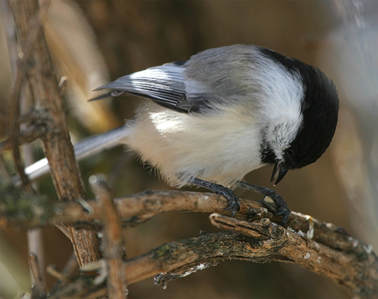
Schopenhauer wrote in the morning, which was followed by a walk, and then he'd practice flute. After this, he'd have leisure time, attend an opera and drink some wine. Kant also followed a strict routine: He drank tea, smoked, wrote and prepared lectures, taught, wrote some more until lunch. He then went for a walk and spent time with his friend, until the evening when he read. Benjamin Franklin and Thomas Jefferson each kept up fairly strict daily routines. Synonyms to "routine" include the words everyday, ordinary, regular, usual, accustomed, methodical. Similarly, the word "habit" includes synonyms such as custom, practice, pattern, groove, praxis and, of course, routine. Since 2015 I have published a Ph.D. dissertation, a monograph, nine articles in peer-reviewed journals, three chapters in edited books, two book reviews, and other less-academic writings (two Wikipedia pages, and this blog). My habits have helped me to be productive.
I read and write every single day. Reading and writing are important, no fundamental, in being a scholar. They're like breathing in and out. But reading and writing every day is not enough. Its not enough to publish stuff. Rather, the stuff we publish has to matter. Otherwise we're wasting energy, paper, and time. For me, three additional habits help cultivate my daily understanding of what's important: walking, gardening, and bird-feeding.
Music educators Roger Mantie and Brent Talbot use the pragmatist philosopher William James to talk about habits as flywheels. "A flywheel is a rotating disc used to store and release energy. ... The point of a flywheel is to smooth out changes in rotational speed resulting from momentum generation and mechanical load." I, like many scholarly writers, have developed habits that not only keep the metaphorical wheel moving, even when I'm not at my creative best, and to slow my thought down to a comprehensible speed when the muse is racing. Walking, gardening, and bird-feeding each help in a similar way as a flywheel helps your lawn mower blade. But because they happen in nature, which is intrinsically unpredictable, these habits can be much more.
1. Walking: The Romantic impulse
Like Schopenhauer, Kant, Franklin, and Jefferson, my daily routine includes reading, writing, and walking. Gandhi was famous for his long walks. Thoreau's most famous quotation, "In wildness is the preservation of the world," comes from his essay "Walking." When I walk I ruminate. I think over ideas. Chew them really. But often I am distracted from my contemplation by the wildness around me. Chickadees and squirrels always command my attention. Their noises and songs suggest ideas I hadn't previously considered. In a state park, and Pennsylvania has some excellent parks, I can imagine that I'm walking on the same soil where my ancestors walked. They too walked for many generations in these Appalachian mountains; below this canopy. And I can imagine I walk where Iroquois, Shawnee, and Lenape walked before my peasant ancestors emigrated from Poland and Lithuania. But walking, if a habit is a flywheel, provides daily inspiration and creativity. It keeps my wheel from stopping. It doesn't slow it down. It is a Romantic impulse. My imagination wanders far. Sometimes too far for good sense.
2. Gardening: Keeping it real
In "The Way of Ignorance," Wendell Berry writes, "The most insistent and formidable concern of agriculture, wherever it is taken seriously, is the distinct individuality of every farm, every field on every farm, every farm family, and every creature on every farm." While I've never farmed (my dad picked potatoes in the summers when he was young, which was a common summer job in his generation), when I garden I have to give up on the generalizations I cultivate while walking. Rather, the individual soil, here, below my feet, with specific weeds, and specific seeds I care for are here. Now. Within this climate; this bioregion. Gardening places nature in a way that walking doesn't. When I garden I want to gain something from my backyard. I want food. Nourishment. But, if I'm not careful to allow some wildness enter into my garden, it can become a capitalist enterprise with overly straight rows of cash crops, rather than a miraculous new birth of polycultures. And so I use permaculture, no-dig, Masanobu Fukuoka-style lazy gardening. And miracles happen in my yard. The Buddha inspired Fukuoka writes, "The ultimate goal of farming is not the growing of crops, but the cultivation and perfection of human beings."
3. Bird-feeding: Recognizing non-human musicking
Deep ecology's founder, Arne Naess wrote, "Present ideology tends to value things because they are scarce and because they have a commodity value. There is prestige in vast consumption and waste." When I feed birds, I don't do it for food. So, the garden and bird-feeder serve different practical and theoretical functions. My garden thrives because I touch it. The birds who visit my bird-feeder thrive because I do not touch them. When I walk, I stop to hug a tree and imagine myself one with creation. But I cannot hug the chickadees, blue jays, juncos, sparrows, and cardinals that visit my bird-feeder every day. And unlike walking, which is movement, bird-feeding is still. I often spend an hour sitting, watching quietly as the birds do their thing. The birds sing beautifully, and for their own reasons. Like us, they music to mate, to show strength, and for pleasure. But they also music for reasons we cannot know. Our brains are different. At my bird-feeder, I recognize the central tenet of deep ecology. That non-human beings have intrinsic value. Places do too.
These three habits, walking, gardening, and bird-feeding, have made all the difference in my scholarship and life. They have helped me find my voice as a music education researcher. These habits are evident in my articles and my book. What habits do you cultivate? Let me know in the comments.
DJS
Link: http://act.maydaygroup.org/articles/MantieTalbot14_1.pdf
Link: https://www.counterpointpress.com/dd-product/the-way-of-ignorance/
Link: https://www.uv.mx/personal/jmercon/files/2011/08/Naess_DeepEcology.pdf
Link: http://topics.maydaygroup.org/articles/2015/Shevock2015.pdf
Link: https://www.routledge.com/Eco-Literate-Music-Pedagogy/Shevock/p/book/9780415792578
Image: https://upload.wikimedia.org/wikipedia/commons/1/1e/Black-capped_Chickadee_eating_seed.jpg
 RSS Feed
RSS Feed
